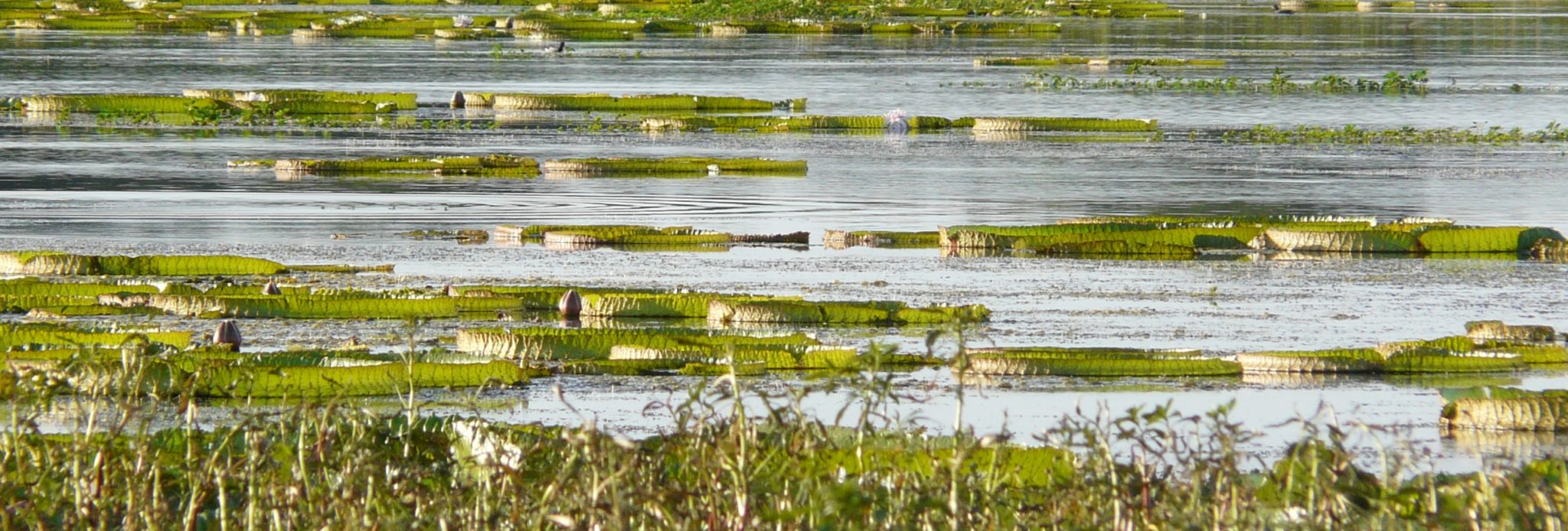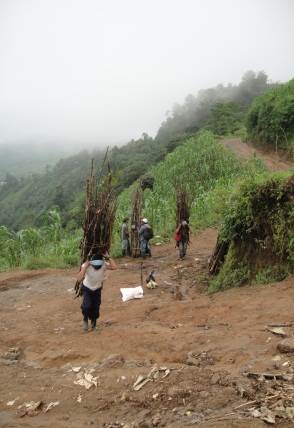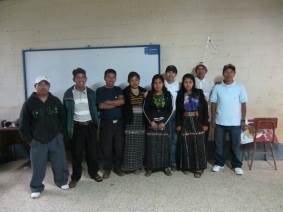
Trust and Hospitality in the Chicorral Community, Ixtahuacán, Sololá, Guatemala
-
Resiliencia comunitaria
For those who have all the basic services it may be inconceivable that there are indigenous K’iche communities in extreme poverty in Guatemala. My first experience in the new Bio-rights initiative that Wetlands International has started was to visit the remote and difficult to access community of Chicorral, together with a technical officer of CARE. In the rainy season you have to walk for one hour or more to reach it, as their area is vulnerable to mudslides, landslides and strong winds, especially in the winter time, caused by deforestation. But one forgets how tired you are once you are greeted by the gentle faces of the community that are awaiting your arrival to support them.

During our visit, a tour was held in the community, where people demonstrated their vulnerable situation as they are faced with the problem of landslides. Each rainy season they suffer these landslides and mudslides, which are caused by deforestation, as forest has been cleared for maxán leafs and coffee monocultures. We discussed the importance of being organised to cover for emergencies and work on mitigation measures that reduce the risks and problems caused by the heavy rain, and to increase their resilience.
Based on this visit, the community representatives were invited to form Local Coordinators for Disaster Risk Reduction and start the work on Risk Management by creating a map defining the hazards, vulnerabilities and capacities in the community and based on that develop a Local Response Plan.

It is interesting to work and live with the community because despite not having much resources, they give everything they have to make you feel comfortable and come back to work with them. In some visits I would have to travel alone and the community leader would come down the valley, closer to my base, to ensure I could reach the community without any trouble. This preoccupation by the community leader is fulfilling for me as technical project staff, and strengthens the relation.
Gradually I, and our initiative, have come to earn the trust of community, which has been key to successfully work with the Bio-rights approach now. They disclosed the needs in the community, helped with translation of Quiche into Spanish and in documenting information and agreements of each visit.
The community visits are planned every 3 weeks, depending on the availability of the community members. When we visited in December 2012 for identification and prioritization of their needs and discuss their project ideas, leaders requested that the entire community should join to decide. Unfortunately it was not possible because it was harvest season for the coffee and maxán leaves grown in the community, and their main sources of household income. However, this tells me that there is a great degree of cohesion among community members, which is essential for reaching the initiative’s objectives.

This strong cohesion in Chicorral community, is an advantage. When the discussions started on the prioritization of DRR measures there was an atmosphere of openness and trust. With the support of a community member to take note of the suggestions, five projects were proposed for Chicorral community to increase their resilience:
1) construction of a water tank, that will allow water distribution to families
2) expansion of the school, which in an emergency event serves as a shelter for vulnerable families
3) small risk mitigation and reduction works around 20 homes
4) reforestation and
5) improvement of the access road to the community.

The community members committed to supply their labour for each of these activities, as well as a commitment for reforestation at the water sources and along of the creek that is a tributary of the Masá River Sub Basin, in return for the financing of these activities. Their commitments are included in contracts that are drafted.
My professional and personal commitment as Wetlands International technical staff for the Bio-rights initiative has grown in response to the trust, hospitality and acceptance by members of the four communities: they always offer a friendly welcome and treatment despite their difficult circumstances.
Azucena Luna Ordóñez
She works as Local Development officer in Bio-rights initiative on Ecosystem Management for Wetlands international. She is based in the Santo Tomás, a small town at the entrance of the valley where the Bio-Rights approach is implemented. Her work consists of engagement with the population and awareness raising on the importance of the protection of water sources and biodiversity and livelihoods. She provides technical assistance in the elaboration and formulation of Conservation and Community Development plans, and supports the accreditation of the Local Response Coordinators. Read also her latest blog on the World Wetlands Day 2013 celebration in Guatemala (Spanish).
